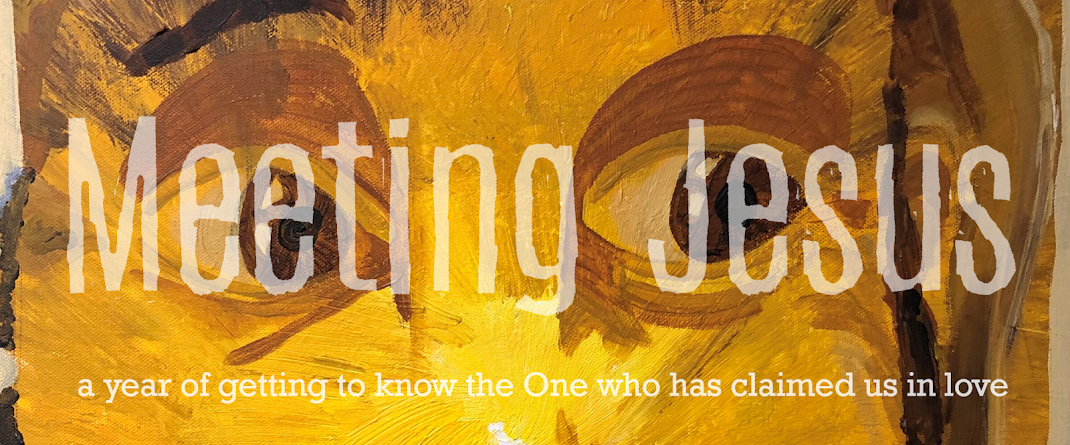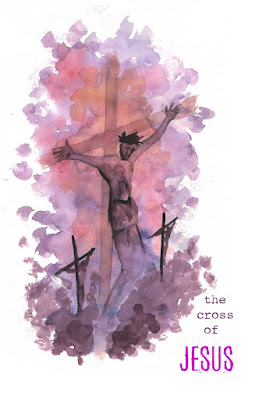Free To Move--March 1, 2024
"Grace to you and peace from God our Father and the Lord Jesus Christ, who gave himself for our sins to set us free from the present evil age, according to the will of our God and Father, to whom the glory forever and ever." [Galatians 1:4]
It's hard enough to hear that we were in need of rescue (gulp... nobody likes to admit that they need saving). But it's harder still to face the realization that we aren't just innocent bystanders or victims--we're part of the problem ourselves!
We're held captive by sin, and at the same time, we are actively co-conspiring in the rottenness we call "sin." We are, to use Thomas Merton's classic phrase for it, "guilty bystanders," willingly participating in the world's greed, hatred, selfishness, idolatry, and jealousy... you know, "sin." (I'm not usually one to mine Taylor Swift lyrics for theology, but there's something insightful and honest in the recurring line from her song, "Anti-Hero," which goes, "It's me! Hi! I'm the problem--it's me.") In other words, we are simultaneously like captives held hostage by sin, and also we are collaborating with our captors and are entangled in their scheming ourselves. It's rather like what psychologists sometimes call "Stockholm Syndrome," where people who have been kidnapped come to identify with their captors and work with them in their plot. To hear the New Testament tell it, that's the human plight--we are both victims of sin, held in its power, and we are actively engaged in it ourselves. We are the problem, and at the same time we are victims harmed by the problem we call "sin." Both are true at the same time.
Now, that by itself is a reality-check we each need to spend some time allowing to sink in. It is a reminder that we Christians aren't merely perfect peaches constantly in danger of being bruised by a wicked world, but we are already moldy in some places, and that means we are also responsible for contaminating others around us, too. We aren't only the victims of OTHER people's sin (although we are that, too), but we are also the ones HARMING others with our own sin. Both need to be dealt with, and both need to be healed.
That's part of why there are so many points of comparison between the Christian life and addiction recovery: to be in recovery from addiction, at least in the classic framework of Twelve Step programs, is to start with the recognition that we are in over our heads and also aggravating the problem in which we are ensnared. Someone who struggles with alcoholism or drug addiction is both chemically dependent and predisposed to the addiction, and they have consciously participated in perpetuating the grip the addiction has on them. When you find yourself at that "rock bottom" place recognizing your life, has become, to use AA parlance, "unmanageable," you begin to realize that you are both captive in the grip of the addiction and also that you are actively contributing to tightening that grip with your choices.
And looking at us--the whole community of Jesus' followers called "Church"--the apostle Paul says, "That's us. We're both victims of The Problem and part of the Problem itself. We need to be set free from the rottenness of The Way Things Are, and we also need to recognize that we are a part of why The Way Things Are is rotten in the first place. And Jesus gave himself for us to address both." But part of what that means is that Jesus gave himself to free people from the grip of sin (us) who are still actively wallowing in it (unfortunately, also us). It's not just that we're helplessly drowning in the sea in need of a life-preserver, but that every time we get pulled to shore and safety we run back out into the surf and start to sink all over again. We aren't just helpless victims who need deliverance from "this present evil age" to preserve our purity--we are mess-ups, sinners, and crooked hearts who are part of the reason there is "evil" in the present age in the first place. And yet--Jesus, knowing full well that we are complicit in the world's suffering as much as we are victims of it--has still chosen to give himself away for us anyway. In other words, Jesus hasn't come to save "good" people from a "wicked" world; he has given himself away for the sake of sinners whose hands are bloody with that very same wickedness, so that the whole world would be put right and renewed in the goodness of his love.
This is part of why our weekly worship typically begins with the corporate practice of naming and confessing our sin--it is not to bring our sins to God's attention, but to help us in telling the truth about ourselves. We need the reminder that we aren't righteous people plagued by having to live alongside a world of sinners, but we are also sinners ourselves. We don't merely need Jesus to fish us out from where the "bad people" are, as though we weren't in that camp ourselves, but we need someone who can heal the crookedness in our hearts and free us from the Stockholm syndrome that has made us collaborate with the sin that holds us captive. And to hear Paul tell it, the cross does that. Jesus gave himself--in his life and in his death--in order that we might be freed from all that we've been entangled in, even though we've been doing our damnedest (literally) to keep getting ourselves more entangled.
So, what are we supposed to do with this realization... and with the day in front of us? Well, for one, there is a certain assurance that gives us the courage to head into the day knowing that Jesus has seen us at our worst and loves us anyway. Jesus doesn't offer his life for sinless saints (there aren't any) but for the real us, who are both captive and complicit in sin. That means there's no use in pretending or covering over our failures, struggles, mess-ups, and the ongoing crookedness in our hearts. But it also means that Jesus makes it possible for us to move in a new direction--to be free from the captivity to sin we've been held by for so long. We don't have to keep going back to the old ways of spite and selfishness, as familiar as they are. Like the hymn puts it, "We know the yoke of sin and death, our necks have worn it smooth--go tell the world of work and woe that we are free to move!" That's just it: we've been sucked into the undertow of sin for so long (and have been actively swimming further into its troubled waters) that maybe we can't dare to believe we don't have to keep going in that direction. But we don't. We are freed by Jesus to move in a new path, a new way, and because we know that Jesus' love came for us even at our worst, we don't have to be afraid of messing up when we dare to take a step in that new direction.
With all of that in mind, what will you and I do with this day? How will we move into it, now that we've been set free to move?
Lord Jesus, since you have set us free, lead us by the hand out of the confines of sin to the expansive spaciousness of your love.











